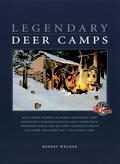Don Rosa is on strike. The popular
writer and artist of Walt Disney’s Uncle Scrooge and
Donald Duck comic books has finally put his foot down,
after years of watching big-time European publishers use his
name. “I stopped work as of last June. I was getting too
frustrated and bitter about being one of the most well-known
cartoonists in Europe and not making a dime off
it.”

Rosa said his beef is not with the
Walt Disney Corporation; it’s with European publishers who
regularly release hardbound books, album collections, and
annual calendars of his work without compensating him. The
final straw was an ad which appeared in a recent edition of
Onkle Dagobert for an upcoming 450-page reprint
collection titled, simply, Don Rosa.
“They hadn’t even bothered to ask if
that title was OK with me,” Rosa said. “They have gotten used
to not dealing with me when they reprint my work. Aside from
the lack of royalties, the results embarrass me. My stories
are often reprinted with incorrect pages of art, the coloring
is improper or incorrect, the lettering is poor or missing
altogether, the computer reproduction is pixilated. And I
don’t even know what’s going on in the translations of my
scripts. But the readers, aside from naturally assuming I get
compensated for the books, also assume I have some control and
naturally blame me for the errors!”
He continued, “The only reason I do
these comics in the first place is because I love working with
the Carl Barks characters and stories I grew up with. I knew I
could never get rich doing Disney comics. It was never my
master plan to be world-famous. I just figured I’d be one of
the dozens of other writers and artists who do these stories
published in the weekly Donald Duck comics that are in
virtually every country in Europe and Asia. And I have no
complaints about how my works are used as the star feature in
these weekly or monthly Donald or Scrooge
magazines, because they are anthologies, containing the works
of many other people. But my biggest problem became my
popularity. After Barks’ classics, it’s only my stories that
are collected in one-creator album series and hardback
collections, etc. I never expected this to
happen.”
He said he also never expected to draw
ducks for a living. “I ran a construction company in Kentucky.
When Gladstone Comics came along in ’87, I offered to do one
story. I’d known it was my destiny to write and draw an Uncle
Scrooge story, but I thought it would be just one. That story
was so well-received I did another little one. Then a bigger
one. I just stumbled into it. I had no intention of doing it
for a living. I make between $30,000 and $35,000 a year. The
page rate is fine, but that’s as fast as I can work and still
turn out stories and art with the complexity that seems to
make my stories so popular.
“The Donald Duck & Co.
weekly is not simply the best-selling comic book in most of
Europe; in many countries it’s the best-selling anything. One
example: The Norwegian weekly sells 250,000 copies each week.
No other publication outsells it. Per capita, that would be
like a North American comic book selling about 80,000,000
copies every issue. And sales in Finland are even better, at
350,000 copies per week. One out of every four people reads
the Donald Duck comic every week in these entire
nations. Sales are also brisk in Sweden, Denmark, France,
Italy, and Germany and eastward across Europe through Russia,
China, India, Indonesia, etc., and into Japan. I have
no complaint with the use of my work in the weekly
anthologies.
“But I can enjoin them from using my
name as the selling point of these ‘All-Rosa’ collections and
especially stop the use of my name as the sole title of entire
books, without agreeing that I deserve at least a percentage
of the profits from books of stories that are 100% my
work.”
Rosa, who graduated from the
University of Kentucky with a BA in civil engineering, lives
with his wife, Ann, in Louisville. He has received two Eisner
awards for his work on Uncle Scrooge, and his name is
sufficient to generate offers from other publishers. “I’m
really not interested, until I’m sure nothing can be worked
out. There’s nothing I’d rather be doing than writing and
drawing Uncle Scrooge. It is more important to me to carry on
Carl Barks’ work than my own father’s work. In the meantime,
I’ve been doing jobs for friends and private commissions. It’s
a very slow prospect dealing with publishers in Europe. I
don’t have legal representation over there. I don’t know how
to contact authors’ guilds or publishers’ guilds for advice.
Gaining contacts and representation from agents who can help
me decide what to do is slow. All I can do is shut down and
see if they’ll come around.”

